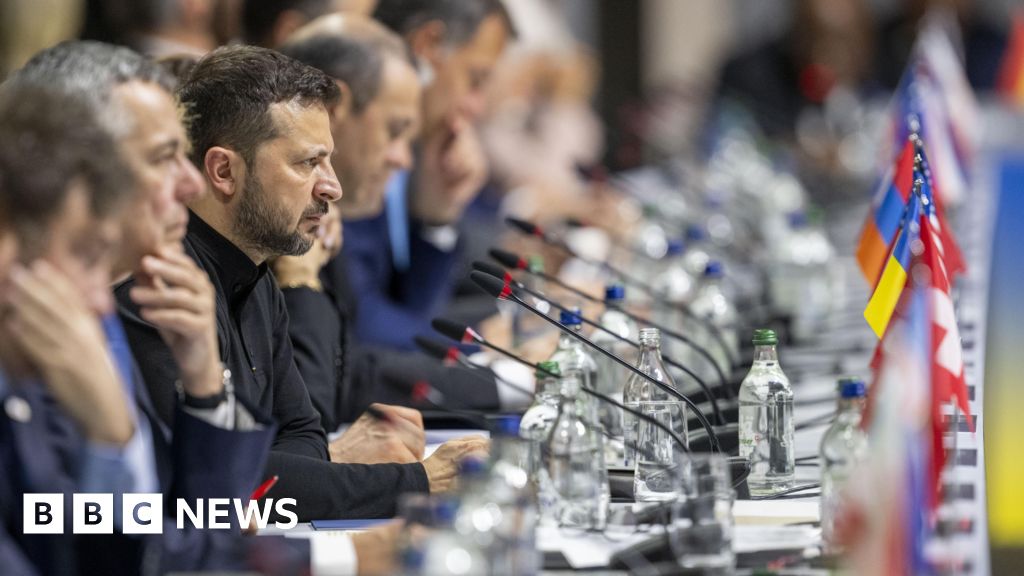
World leaders at the Ukraine summit for peace in Switzerland are exploring ways of ensuring the security of nuclear sites and of Ukraine’s food exports.
They are seeking to adopt a final communique which blames the war’s widespread suffering and destruction firmly on Russia, which Kyiv would regard as a success.
But Austria’s leader has said that the declaration is not expected to gain unanimous support from participants.
More than 90 countries and international organisations are attending the summit, aimed at creating the broadest possible backing for a process that could help end the war in Ukraine.
Russia has not been invited, and its biggest backer China is not present, leading some to cast doubt on the summit’s effectiveness.
Some of those gathered in the Swiss resort of Bürgenstock are not Ukraine’s closest supporters, including Saudi Arabia, whose foreign minister has warned that Ukraine will have to make difficult compromises, and Kenya, which spoke out against recent sanctions on Russia.
The draft final document, seen by Reuters news agency, calls for Ukrainian control to be restored over the Zaporizhzhia nuclear power plant and the country’s ports on the Azov Sea, all currently occupied by Russia.
It also refers to Russia’s invasion as a “war”, a label which Moscow has rejected.
Humanitarian issues such as the return of prisoners and abducted children are also being discussed.
The most contentious topics, like the status of land under Russian occupation, will be left for later.
The organisers of the summit hope to announce a second conference, possibly in Saudi Arabia, to build on what has been achieved.
Dutch Prime Minister Mark Rutte said that attendees were united in their quest for peace in Ukraine.
“We all know we’re only at the beginning, the beginning of a path to peace,” he said.
“And despite some of us around this table having different opinions on how to exactly get to peace for Ukraine, let there be no mistake… we are totally united at a shared vision on principles, on values, on decency.
“You do not invade another country. You do not abduct children. You do not play politics with the world’s food supply. And you do not endanger nuclear safety.”
It had been expected that all the delegations would endorse a final statement condemning Russia’s invasion, but Austrian Chancellor Karl Nehammer told journalists on Sunday that the declaration would not be supported unanimously.
Ukrainian President Volodymyr Zelensky said on Saturday that the results of the Swiss summit would be communicated to Moscow “so that at the second peace summit we can fix the real end of the war”.
Russia has described the Swiss event as a waste of time, and on Friday President Vladimir Putin said he would agree to a ceasefire if Ukraine withdrew troops from four regions which Russia partially occupies and claims to have annexed.
But a day later Western leaders attending the summit strongly rejected Mr Putin’s proposal.
Italian Prime Minister Giorgia Meloni described it as “propaganda” and UK Prime Minister Rishi Sunak accused Mr Putin of “spinning a phoney narrative about his willingness to negotiate”.
Then on Sunday Kremlin spokesman Dmitry Peskov said the Russian leader did not rule out talks with Ukraine, but added that guarantees would be needed to ensure their credibility and Mr Zelensky could not be a participant.
